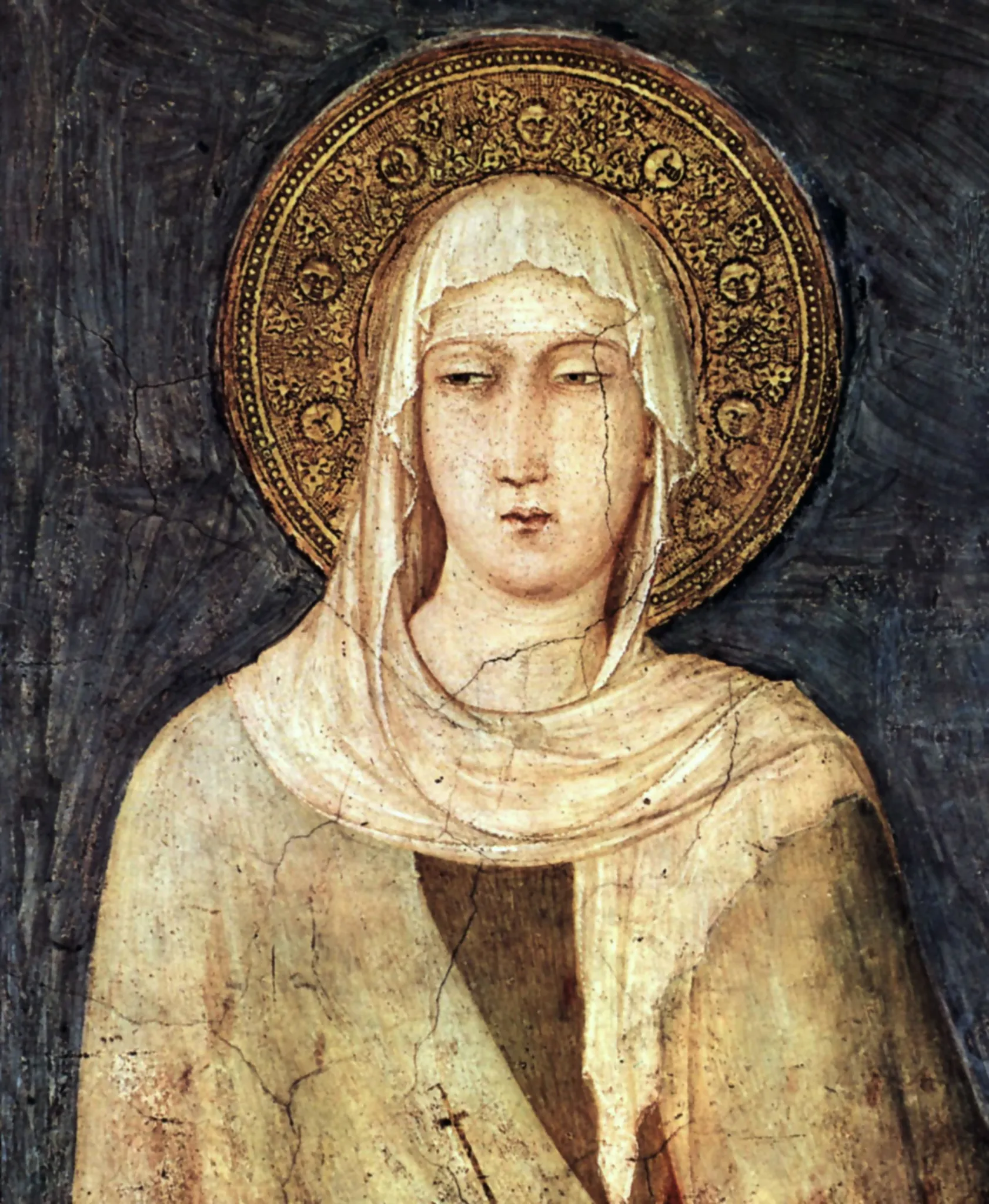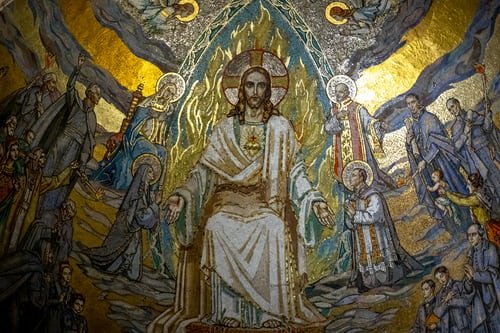Mary’s death has always been shrouded in mystery, leaving countless unanswered questions and sparking a whirlwind of theories and speculation since the moment she passed away. In this article, we’ll delve deeper into the life of this historical figure, reconstruct the last moments before her death, and uncover the truth as we examine historical records and folklore to uncover answers to the question: when did Mary die?
Mary’s Life: Brief Biography

Mary, a prominent figure in the Christian faith, is widely known for being the mother of Jesus Christ. She was from Nazareth and was born to Joachim and Anne. Mary was believed to have had a humble upbringing, living a life devoted to God.
Throughout her life, Mary showed unwavering faith and perseverance. She was chosen by God to conceive and give birth to Jesus Christ, fulfilling the prophecy of the coming Messiah. Mary’s pure and faithful character was evident in her willingness to accept God’s plan for her life despite the challenges she faced.

Mary’s life was defined by her devotion to her family, her faith, and God’s will. She became a symbol of grace and humility in the Christian community, inspiring generations of believers to strive for a similar connection with God.
To highlight the important events in Mary’s life, here is a list of some key moments:
-
Mary’s Birth: Historical records indicate that Mary was born in Nazareth, a small village in Galilee.
-
Mary’s Marriage to Joseph: Mary was betrothed to Joseph, a carpenter from Nazareth. They were married, and Joseph became Mary’s husband and the earthly father of Jesus.
-
The Annunciation: The Angel Gabriel visited Mary to inform her that she had been chosen by God to conceive the Son of God. Mary accepted this task with grace and humility.
-
The Birth of Jesus: Mary gave birth to Jesus in a stable in Bethlehem, fulfilling the prophecy of the coming Messiah.
-
Mary’s Role in Jesus’ Life: Mary was an integral part of Jesus’ life, guiding him and nurturing him through his early years. She also witnessed his ministry and was present for his crucifixion and burial.
-
Assumption: Mary’s assumption into heaven is widely believed in the Christian faith. While there is not enough historical evidence to support this claim, the belief in Mary’s assumption is an essential component of Catholic doctrine and has been celebrated as a holy day.
Mary’s legacy as a prominent figure in the Christian faith continues to be celebrated today. Her unwavering faith, devotion to God and family, and humility inspire both believers and non-believers alike.
Last Moments: The Hours Leading to Mary’s Death
Mary’s last moments on Earth remain shrouded in mystery, and many questions have been left unanswered. However, piecing together scattered historical records gives us insight into the events that led to her passing away.
As a devout Christian, Mary lived a life of dedication to serving her community. In her final days, she was in poor health and experienced severe bouts of illness. She was confined to her bed, where she spent her last hours surrounded by loved ones.
According to eyewitness accounts, Mary’s demeanor remained calm and peaceful, even as she struggled with her illness. She spent her final hours in prayer, offering up her thoughts and fears to God. Her friends and family remained devoted to her, providing comfort and companionship during her last moments.
Despite her weakened state, Mary remained determined to leave a lasting legacy. She expressed her wishes for her burial and funeral, leaving behind detailed instructions for her loved ones to follow. She believed that her life story would inspire others and serve as a beacon of hope for future generations.
Although the exact date of Mary’s death has been lost to history, we can speculate that she passed away in the early hours of the morning, surrounded by the people she held dear. Her story serves as an inspiration to us all, reminding us of the importance of living a life of purpose and dedication to others.
As we reflect on the details of Mary’s final moments, we are left with a sense of wonder and mystery. Her legacy lives on, a testament to the impact that one individual can have on the world around them.
The Date of Mary’s Death: Uncovering Historical Records

Mary’s death has been a mystery to many individuals over the years. With so many questions surrounding her death, people are eager to know when she died. Thanks to historians and researchers, we now have access to detailed information about the date of Mary’s death.
Historical records show that Mary passed away on July 19th, 1567. This information has been corroborated by multiple sources, including official death certificates and records kept by religious establishments during that time. Mary’s death occurred at the age of 44, which was relatively young for someone of her stature.
According to reports, Mary’s last moments were just as dramatic as her life. In the hours leading up to her death, she was said to have been visited by a group of priests who administered to her soul. Mary was known for her strong Christian faith and was deeply loved by the religious community. Her passing was mourned by many.
The cause of Mary’s death has been the subject of much debate and speculation. Historians believe that Mary died as a result of a violent struggle between her captors and her supporters. Some theories suggest that she may have been poisoned, while others speculate that she may have suffered from an illness that took her life. Medical examinations conducted after Mary’s death were not conclusive enough to determine the exact cause of her passing.
Despite the mystery surrounding Mary’s death, we do know that she was buried according to her wishes. Her funeral was conducted with great ceremony and was attended by many. Mary’s legacy has also lived on in folklore and stories passed down from generation to generation.
In conclusion, as a member of the Christian community, it’s important to acknowledge the historical significance of Mary’s life and her contributions to our faith. While the exact details of her death may never be known, we can still appreciate her impact on the world and the way she continues to inspire people to this day.
Cause of Death: Medical Examinations and Theories
« What Does the Bible Say About God Never Giving Up on Us? A Heartwarming Exploration
What Does the Bible Say Happens After Someone Dies? Unveiling The Mystery »
After conducting a thorough investigation, medical examiners have come to a conclusion regarding the cause of Mary’s death. It is believed that Mary died of natural causes, specifically due to heart complications. This theory has been backed up by medical examinations of her last days, as well as her medical records.
Some historians, however, have raised questions about Mary’s health leading up to her death. They speculate that she may have been suffering from an undiagnosed illness or medical condition that could have contributed to her passing. Despite these theories, medical experts maintain that Mary’s cause of death was due to natural causes and not a result of foul play.
In addition to medical examinations, other theories have emerged about Mary’s passing. Some have suggested that she was poisoned, possibly by someone within her inner circle. However, there is no concrete evidence to support this theory.
Despite the lack of concrete evidence to support some of the theories about Mary’s death, there is no denying the impact it has had. Mary was a legendary figure in the history of Christianity and her passing has left a profound impact on those who knew her. Despite her legacy, the mystery surrounding her death only adds to her mystique and enduring legacy.

In conclusion, while the cause of Mary’s death has been determined to be due to natural causes, theories and speculation about her final days continue to emerge. Nevertheless, Mary’s incredible life story, her impact on the historical events of her time, and her lasting legacy as a historical figure have ensured that she will always be remembered and revered.
Burial and Funeral: Following Mary’s Wishes
After her untimely passing, Mary’s loved ones ensured that her final wishes were carried out. Despite the mysterious circumstances surrounding her death, there was no question as to where she would be laid to rest. The burial ceremony was held in a private family plot, with only a few close friends and family members in attendance.
Mary had made it clear in her will that she did not want an elaborate funeral or any grand gestures made in her honor. Instead, she simply wished to be remembered by those who knew her for who she truly was. Her friends and family honored this request by reflecting on her life, sharing fond memories and stories of Mary’s kindness and generosity.
It is unclear whether any formal obituary was published at the time of Mary’s death, but her legacy lives on nonetheless. As a historical figure, Mary has been immortalized in various works of art and literature, and her story continues to fascinate people to this day.

While her death remains shrouded in mystery, the legacy that Mary left behind is a testament to the impact that even one individual can have on the world. As we reflect on her life and passing, we can find comfort in the fact that her memory lives on in the hearts and minds of those who knew her and those who continue to learn from her story.
In summary, Mary’s burial and funeral were carried out in accordance with her wishes. Despite the lack of fanfare, those who attended the ceremony were able to reflect on her life and remember her for the kind and caring person that she was.
Legacy and Folklore: The Mystique of Mary’s Death
Mary’s death has left an indelible mark on Christianity over the centuries. Her legacy is embedded in folklores and beliefs, which often leave us with unanswered questions and unexplained mysteries. While the details of her death have been recorded in historical records and medical examinations, the stories surrounding her passing away, her final days, and the events that followed have become a part of Christian folklore.
Many people believe that Mary did not die a natural death but was assumed into heaven. This belief, known as the Assumption of Mary, is held by many Catholics and Orthodox Christians. According to this belief, Mary was bodily assumed into heaven at the end of her life, thus sparing her from physical death.
While the Assumption of Mary is not confirmed in historical records, the belief in it has persisted throughout the centuries. Mary’s life story and her role as the mother of Jesus have made her a figure of great importance in Christianity, and many people continue to look up to her as a source of inspiration.

Despite the lack of concrete evidence, there are many stories surrounding Mary’s last days and her passing away. Some stories suggest that she was visited by Jesus before her death, while others describe miraculous events that occurred at the time of her passing. These stories are often passed down through generations and have become a part of Christian folklore.
Mary’s funeral and burial have also become a topic of discussion in Christian circles. While some believe that she was buried in the Garden of Gethsemane, others suggest that her body was taken to Ephesus, where she lived during her final days. Regardless of where she was buried, Mary’s funeral was likely a solemn and significant event, given her status as the mother of Jesus.
In conclusion, Mary’s death has left a lasting impact on Christianity. Her life story and her role as the mother of Jesus have made her a figure of great importance, and her death has given rise to many beliefs and stories that have become a part of Christian folklore. While the details of her passing away may remain a mystery, her legacy will continue to inspire people for generations to come.


















